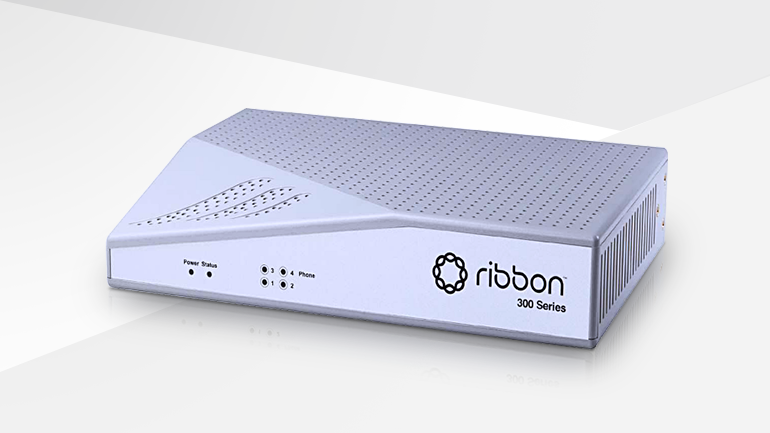US telecoms will not charge late fees during COVID-19 pandemic Major US telecommunications companies such as AT&T, Comcast, Cox, and Verizon have expanded their policies to not charge late payments and cancel service for customers and small businesses affected by the COVID-19 pandemic until June 30. Furthermore, Comcast said that apart from extending the commitment through June 30 and providing its Wi-Fi hotspots to everyone, it would also extend the pause in its data plans to give all customers unlimited data at no extra charge. With tens of millions of Americans working from home, internet providers and the FCC say the internet is performing well. Read more at https://tinyurl.com/yd8wbxuv Google is making Meet free for everyone The tech giant has announced that Google Meet, its premium video conferencing product, will be free for everyone and will be fully accessible over the coming weeks. Previously, the Meet service was available only…
The US technology company Ribbon Communications has introduced its new EdgeMarc 300 Series to provide small businesses, home office and branch office customers that currently have analog voice infrastructure, with an easy and cost-effective way to capitalize on IP-based voice services. The cloud solutions provider said that the EdgeMarc 300 is part of the recently launched cloud-based Ribbon Next Generation Intelligent Edge portfolio, which securely connects and enhances enterprise voice and data applications, including Microsoft Teams. This portfolio of edge solutions delivers service assurance, advanced analytics, security, policy and routing functionalities for cloud communications applications. Ribbon’s EdgeMarc 300 is a survivable branch office solution that supports the integration of analog endpoints and the public switched telephone network (PSTN), as well as Session Initiation Protocol (SIP) calls. This gateway provides connectivity between analog and SIP devices, enabling branch offices to rapidly migrate analog phones to a SIP-based network and communicate seamlessly with…
Ribbon launches Next Generation Intelligent Edge portfolio to accelerate enterprise migration to cloud services The US technology company Ribbon Communications has introduced its Next Generation Intelligent Edge portfolio that includes the new EdgeMarc 6000, the latest iteration of Ribbon’s modular platform for voice and data functions. The cloud solutions provider said that its products portfolio securely connects and enhances enterprise voice and data applications, including Microsoft Teams, while delivering service assurance, advanced analytics, security, policy and routing capabilities for cloud communications applications. Ribbon’s Next Generation Intelligent Edge portfolio delivers a comprehensive enterprise edge offering to service providers and enterprises. Read more at https://tinyurl.com/uz95gdj Early 5G smartphone market all about Samsung and Huawei According to the latest Strategy Analytics (SA) report, the demand for 5G smartphones turned out to be much higher than expected and reached 19 million units sold in 2019. Almost three-quarters of such deliveries were made by Huawei and…
In the ever-evolving landscape of Unified Communications (UC), sustainability is emerging as a key consideration, influencing how businesses select their UC providers. With regulatory changes and environmental responsibility becoming primary concerns, decision-makers must now weigh the ecological impacts alongside traditional factors like reliability and cost. This shift is further compounded by the energy demands of artificial intelligence (AI) integration in UC platforms, making accurate emission assessments crucial. For companies striving towards carbon neutrality, transparency in emissions and sustainable practices are integral to meeting both regulatory requirements and corporate social responsibility goals.
SoftBank is investing $25 billion into OpenAI, launching SB OpenAI in Japan to deliver AI-powered enterprise solutions under the Cristal intelligence brand. Partnering with Arm for scalable AI integration, the venture targets major Japanese corporations.
Soracom, a KDDI division, has integrated generative AI into its cellular IoT platform, launching Soracom Flux and Soracom Query Intelligence. These tools simplify IoT deployments, empowering non-technical users to manage data and connectivity efficiently. Enhanced with AI, these services promise to revolutionize how industries implement and manage IoT networks.
Verizon launches AI-driven apps to improve customer service by streamlining interactions. The European Commission designates Booking.com as a ‘gatekeeper’ and plans antitrust charges against Microsoft for bundling Teams with Office. Telstra establishes a regional network hub in Guam at GNC iX data center. GlobalData underscores US telcos’ struggle to stand out in the B2B channel.
Communication is essential for any business, whether it is to connect with customers, partners, suppliers, or employees. One of the leading providers of cloud-based communication solutions is Voicenter, an innovative international tech-telephony company that develops a wide variety of communication platforms based on secure cloud technologies.
The virtual event platform market’s potential $40 billion valuation by 2032 signals increasing digitalization in businesses worldwide. As unified communications services grow in popularity, so does the demand for virtual and hybrid event solutions for various industries.
Explore the real-world benefits of proactive Unified Communications management, as increasing costs and complexity demand streamlined solutions. Discover how third-party tools enhance visibility, reduce operational overhead, and support automation for multi-vendor UC environments.













